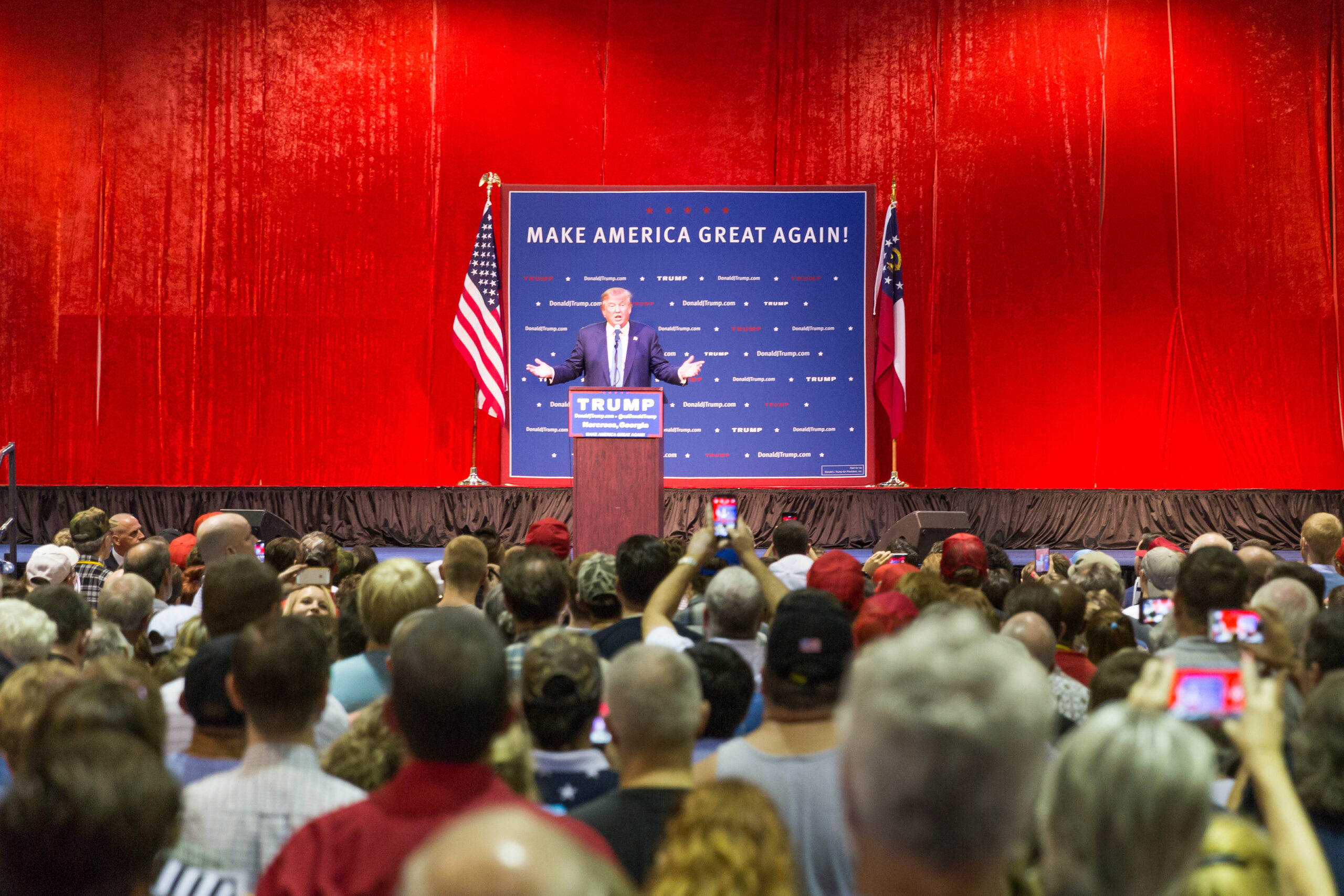- July 14, 2023
- 3 minutes read
Republican Presidential Hopefuls Vie for Relevance in Face of Trump’s Dominance

The race for the Republican presidential nomination is heating up as the Iowa caucuses draw near. With former President Donald Trump looming large over the field of candidates, contenders like Florida Governor Ron DeSantis are feeling the pressure to prove themselves as serious challengers. However, DeSantis has struggled to generate the same level of enthusiasm and support that Trump commands from the GOP base, raising doubts about his ability to pose a significant threat to the former president.
DeSantis is among several candidates attending the Family Leadership Summit in Iowa, a key event in the state’s political calendar. While Trump is not attending, his frequent visits to Iowa have solidified his position as the front-runner. Winning in Iowa could give Trump a significant advantage heading into the subsequent contests, making it a crucial state for any candidate hoping to stop him.
One contender who has caught the attention of many is South Carolina Senator Tim Scott. Known for his conservative agenda, Scott has been praised for his outreach efforts and positive messaging. His focus on grassroots campaigning, particularly with pastors and churches, has garnered support and caused the needle to move in his favor. Voters like LaTomah Hauff have been drawn to Scott’s passion and optimism.
Despite Trump’s strong position in Iowa and the Republican Party nationally, there are still vulnerabilities that his rivals may seek to exploit. His ongoing feud with Iowa Governor Kim Reynolds, as well as recent indictments in New York and Florida, could be potential liabilities. Some Republicans believe that a significant number of Trump voters remain open to supporting an alternative candidate, with public polling indicating that DeSantis could be a stronger contender against President Biden in the general election.
However, Republicans face the challenge of crafting a message that resonates with Trump supporters who are open to other candidates in 2024. The Koch brothers’ political arm, Americans for Prosperity, has been actively working to undermine Trump in Iowa and other early primary states. Their focus is on raising doubts about Trump’s chances in a general election and engaging with nontraditional conservative voters. This approach has garnered both support and concern within the party, with some believing that speaking against Trump could be a losing strategy.
While DeSantis may face an uphill battle against Trump, he is well-positioned for a long nomination fight. His strong fundraising numbers, including $20 million raised in the first six weeks after his announcement, give him the resources to stay in the race beyond Iowa. Some donors who previously supported Trump, like Tim Michels from Wisconsin, are shifting their support to DeSantis. Michels attended a DeSantis fundraiser, signaling a shift in loyalties among some Republican donors.
Ultimately, DeSantis’s path to recovery lies in a strong showing in Iowa. Some believe that his ability to stoke conservative outrage on issues like transgender rights and racial equality could resonate with voters. By speaking the language of evangelical love and highlighting his commitment to protecting children and pushing back against woke ideology, DeSantis hopes to win over Iowa voters and reestablish himself as a formidable opponent to Trump.
As the six-month sprint to the Iowa caucuses begins, the Republican candidates face the daunting task of proving themselves as viable alternatives to Donald Trump. The race is far from over, and the coming weeks and months will determine whether any of them can rise to the challenge and pose a serious threat to the former president’s dominance within the party.
